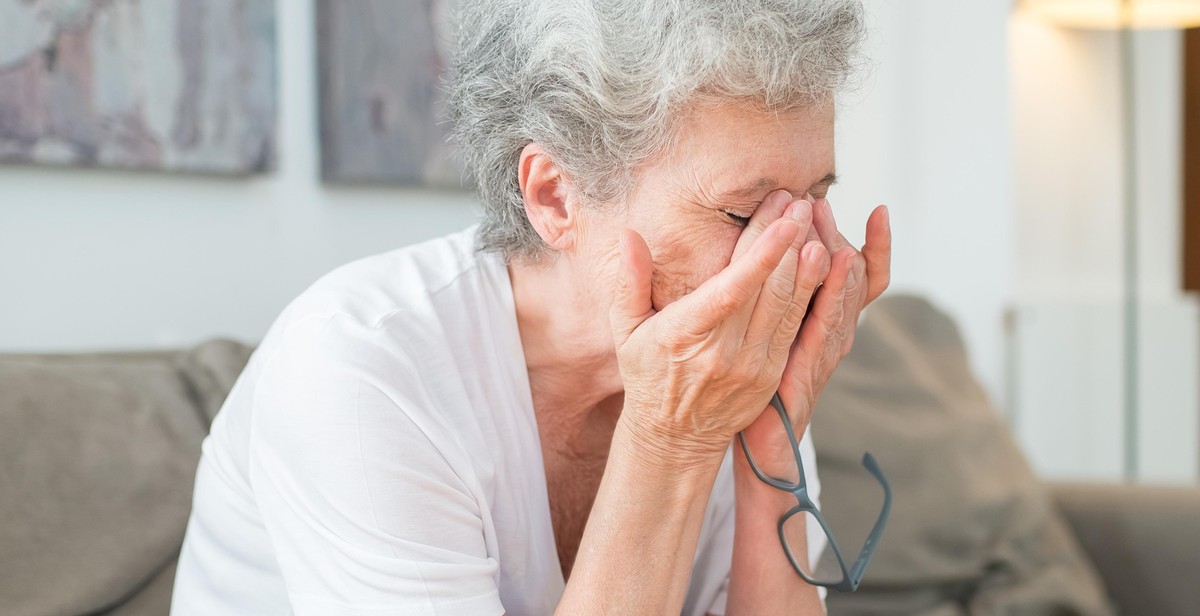Dealing with the Psychological Impact of Chronic Pain
Chronic pain is a debilitating condition that affects millions of people worldwide. It can be caused by a variety of factors, including injury, illness, or disease. Regardless of the cause, chronic pain can have a significant impact on a person’s mental health and well-being. It can lead to depression, anxiety, and other psychological issues that can further exacerbate the pain.
The Psychological Impact of Chronic Pain
Chronic pain can affect a person’s daily life in numerous ways. It can make it difficult to perform everyday tasks, such as getting dressed or cooking a meal. It can also make it challenging to maintain relationships and social activities. The constant pain can lead to feelings of hopelessness, frustration, and anger.
Furthermore, the psychological impact of chronic pain can also affect a person’s physical health. It can lead to poor sleep, decreased appetite, and a weakened immune system. These factors can further exacerbate the pain and make it even more challenging to manage.
Dealing with the Psychological Impact of Chronic Pain
Dealing with the psychological impact of chronic pain can be challenging, but it is essential for a person’s overall well-being. It requires a multi-faceted approach that includes medical treatment, therapy, and lifestyle changes.
- Medical Treatment: Depending on the cause of the pain, medical treatment may include medication, physical therapy, or surgery. It is essential to work closely with a healthcare professional to find the most effective treatment plan.
- Therapy: Therapy can help a person learn coping mechanisms and strategies for managing the psychological impact of chronic pain. It can also provide emotional support and a safe space to discuss the challenges of living with chronic pain.
- Lifestyle Changes: Lifestyle changes, such as exercise, healthy eating, and stress management, can also help manage the psychological impact of chronic pain.
Overall, dealing with the psychological impact of chronic pain requires a comprehensive approach that addresses both the physical and mental aspects of the condition. With the right treatment plan and support, it is possible to manage chronic pain and maintain a good quality of life.

What is Chronic Pain?
Chronic pain is a type of pain that lasts for more than 12 weeks or beyond the expected healing time of an injury or illness. Unlike acute pain, which is a normal response to injury or illness and usually goes away after the underlying cause is treated, chronic pain persists and can be debilitating both physically and mentally.
Defining Chronic Pain
Chronic pain is a complex condition that can affect any part of the body. It can be caused by a variety of factors, including:
- Chronic illnesses such as arthritis, fibromyalgia, and multiple sclerosis
- Injuries or surgeries that don’t heal properly
- Repetitive strain injuries
- Back problems
- Neurological conditions
- Cancer
- Unknown causes
Chronic pain can be constant or intermittent and can range from mild to severe. It can also be accompanied by other symptoms such as fatigue, depression, anxiety, and sleep disturbances.
Causes of Chronic Pain
The causes of chronic pain are not always clear, and often, it is a combination of physical and psychological factors. Some of the common causes of chronic pain include:
- Inflammation
- Nerve damage
- Muscle or joint damage
- Psychological factors such as stress, anxiety, and depression
- Changes in the central nervous system
- Genetic factors
It is important to note that chronic pain is a subjective experience, and what may be painful for one person may not be for another. Therefore, it is crucial to seek medical attention if you are experiencing chronic pain.
| Key Takeaways: |
|---|
| Chronic pain is a type of pain that lasts for more than 12 weeks or beyond the expected healing time of an injury or illness. |
| It can be caused by a variety of factors, including chronic illnesses, injuries, and surgeries that don’t heal properly, and unknown causes. |
| The causes of chronic pain are not always clear and can be a combination of physical and psychological factors. |

The Psychological Impact of Chronic Pain
Chronic pain can have a significant impact on an individual’s mental health, causing depression, anxiety, and post-traumatic stress disorder (PTSD). The constant discomfort and limitations that come with chronic pain can lead to feelings of hopelessness and despair, making it difficult to enjoy life and engage in daily activities.
Depression and Anxiety
Depression and anxiety are common psychological conditions that can arise from chronic pain. These conditions can be caused by the physical pain itself or by the stress and frustration of living with a chronic illness. Living with chronic pain can also lead to a sense of loss, as individuals may no longer be able to engage in activities they once enjoyed. This can lead to social isolation and further exacerbate feelings of depression and anxiety.
Post-Traumatic Stress Disorder
Chronic pain can also lead to post-traumatic stress disorder (PTSD). PTSD is a mental health condition that can develop after experiencing a traumatic event. In the case of chronic pain, the trauma is ongoing and can lead to symptoms such as flashbacks, nightmares, and avoidance behaviors. These symptoms can make it difficult to cope with daily life and can further exacerbate feelings of depression and anxiety.
Social Isolation
Living with chronic pain can also lead to social isolation. Individuals may feel embarrassed or ashamed of their condition, or they may feel like they are a burden to others. This can lead to a lack of social support and further exacerbate feelings of depression and anxiety. Social isolation can also lead to a sense of loneliness and can make it difficult to engage in activities that once brought joy.
| Psychological Conditions | Causes | Symptoms |
|---|---|---|
| Depression | Physical pain, loss of activities, social isolation | Hopelessness, despair, loss of interest |
| Anxiety | Physical pain, stress, frustration | Worry, fear, restlessness |
| Post-Traumatic Stress Disorder | Ongoing trauma of chronic pain | Flashbacks, nightmares, avoidance behaviors |
It is important for individuals living with chronic pain to seek support and treatment for their mental health. This can include therapy, medication, and support groups. By addressing the psychological impact of chronic pain, individuals can improve their quality of life and find ways to cope with their condition.

Coping Mechanisms
Living with chronic pain can be a daunting experience, both physically and mentally. However, there are ways to minimize the psychological impact of chronic pain and improve your overall quality of life.
Mindfulness Meditation
Mindfulness meditation is a technique that involves focusing your attention on the present moment and accepting it without judgment. This practice has been shown to reduce anxiety, depression, and stress levels in individuals with chronic pain.
By practicing mindfulness meditation, you can learn to observe your thoughts and feelings without getting caught up in them. This can help you develop a sense of detachment from your pain and reduce the negative emotions associated with it.
Cognitive Behavioral Therapy
Cognitive Behavioral Therapy (CBT) is a form of talk therapy that can be particularly helpful for individuals with chronic pain. This therapy focuses on identifying and changing negative thought patterns and behaviors that can contribute to pain and discomfort.
Through CBT, you can learn to challenge negative thoughts and replace them with more positive and realistic ones. This can help you develop a more positive outlook on life and improve your overall well-being.
Exercise and Physical Therapy
Exercise and physical therapy can be effective coping mechanisms for chronic pain. Regular physical activity can help reduce pain and improve mobility, as well as release endorphins, which are natural painkillers.
Physical therapy can also help you learn how to move your body in ways that minimize pain and discomfort. This can help you develop a greater sense of control over your pain and improve your overall quality of life.
| Technique | Description |
|---|---|
| Mindfulness Meditation | Focus on the present moment and accept it without judgment. |
| Cognitive Behavioral Therapy | Identify and change negative thought patterns and behaviors that contribute to pain and discomfort. |
| Exercise and Physical Therapy | Regular physical activity and learning how to move your body in ways that minimize pain and discomfort. |
By incorporating these coping mechanisms into your daily routine, you can improve your ability to manage chronic pain and lead a happier, healthier life.

Alternative Treatments for Chronic Pain
When dealing with chronic pain, it can be frustrating to feel like traditional treatments are not providing relief. Luckily, there are alternative treatments available that can help alleviate pain and improve overall well-being. Here are three popular alternative treatments:
Acupuncture
Acupuncture is a traditional Chinese medicine practice that involves inserting thin needles into specific points on the body. This treatment is believed to stimulate the body’s natural healing processes and promote physical and emotional well-being. Acupuncture has been shown to be effective in treating a variety of chronic pain conditions, including back pain, neck pain, and arthritis.
During an acupuncture session, a practitioner will insert needles into specific points on the body. The needles are left in place for several minutes, and patients may feel a tingling or numbness sensation. Many people find acupuncture to be relaxing and enjoyable, and it can be a great way to manage chronic pain without relying on medication.
Massage Therapy
Massage therapy is another alternative treatment that can be effective in managing chronic pain. Massage therapists use a variety of techniques to manipulate the muscles and soft tissues of the body, helping to reduce tension and improve circulation. Massage therapy has been shown to be effective in treating a variety of chronic pain conditions, including fibromyalgia, arthritis, and lower back pain.
During a massage therapy session, the therapist will use a variety of techniques to manipulate the muscles and soft tissues of the body. Patients may feel a deep sense of relaxation during the session, and many people find that massage therapy helps to improve their overall sense of well-being.
Chiropractic Care
Chiropractic care is a treatment approach that focuses on the alignment of the spine and other joints in the body. Chiropractors use a variety of techniques to manipulate the joints, helping to reduce pain and improve overall function. Chiropractic care has been shown to be effective in treating a variety of chronic pain conditions, including back pain, neck pain, and headaches.
During a chiropractic session, the chiropractor will use a variety of techniques to manipulate the joints of the body. Patients may feel a sense of relief and improved mobility after the session, and many people find that regular chiropractic care helps to prevent chronic pain from returning.
- Acupuncture, massage therapy, and chiropractic care are all effective alternative treatments for chronic pain.
- These treatments can help alleviate pain and improve overall well-being.
- If you are struggling with chronic pain, consider incorporating one or more of these alternative treatments into your treatment plan.

Conclusion
Dealing with chronic pain can be a challenging and isolating experience. It can take a significant toll on an individual’s mental and emotional well-being. However, there are several ways to manage the psychological impact of chronic pain.
Seeking Professional Help
It is essential to seek professional help to manage the psychological impact of chronic pain. A mental health professional can provide support, guidance, and treatment options to cope with the emotional challenges that come with chronic pain.
Engaging in Activities
Engaging in activities that bring joy and pleasure can help alleviate the psychological impact of chronic pain. Activities such as reading, art, music, or spending time with loved ones can provide a sense of purpose and fulfillment.
Joining a Support Group
Joining a support group can provide a sense of community and belonging. It can be helpful to connect with others who understand the challenges of living with chronic pain and share experiences and coping strategies.
Managing Stress
Chronic pain can cause stress, which can exacerbate the psychological impact of pain. Managing stress through relaxation techniques such as meditation, deep breathing, or yoga can help reduce the psychological impact of chronic pain.
Conclusion
Managing the psychological impact of chronic pain is essential for overall well-being. Seeking professional help, engaging in activities, joining a support group, and managing stress are some effective ways to cope with the emotional challenges of chronic pain. Remember that every individual’s experience with chronic pain is unique, and it is essential to find what works best for you.
